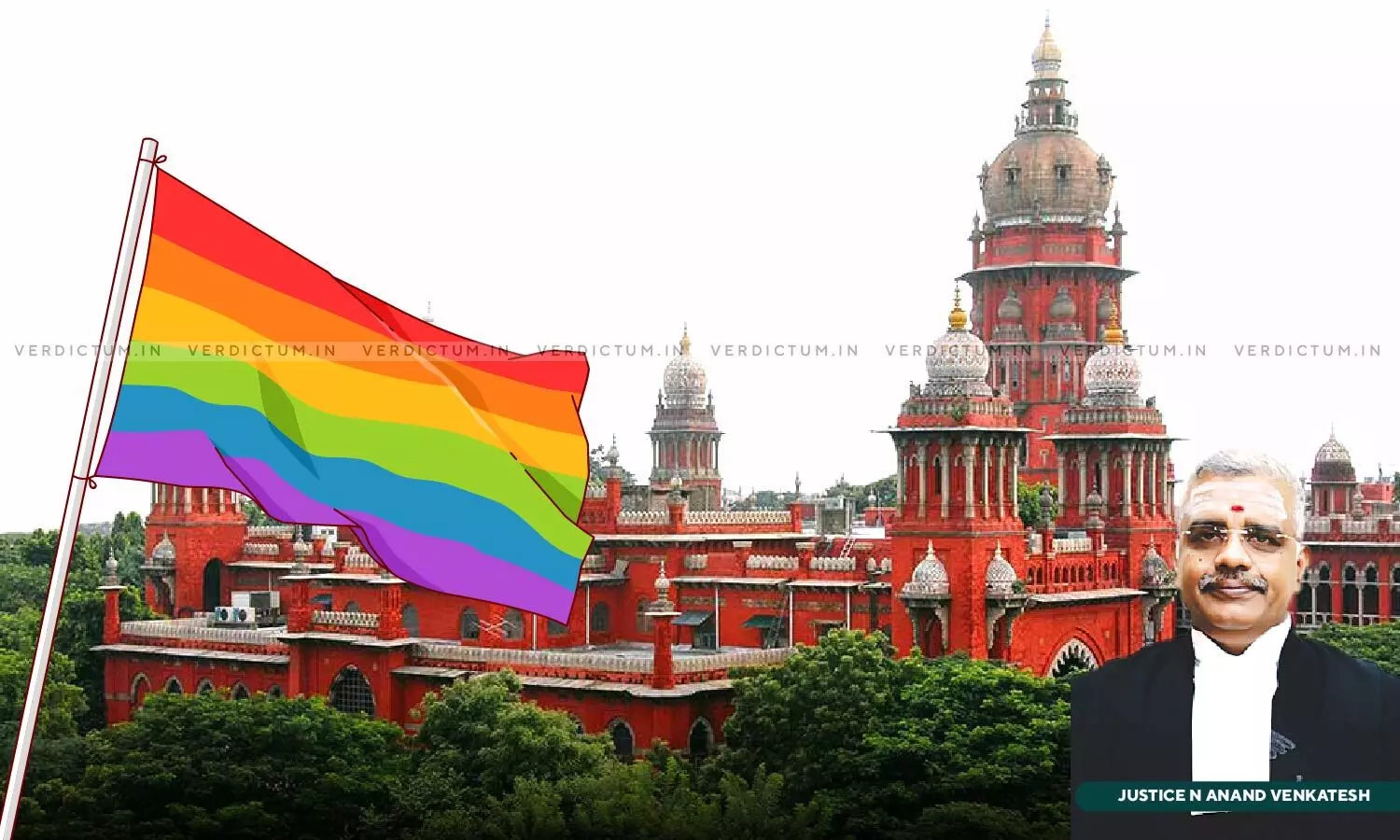
Madras HC Asks State To Consider Recognizing And Registering ‘Deed of Familial Association’ Between LGBTQIA+ Couples To Give 'Respect And Status' To Relationship
 |
|The Madras High Court has recommended the State to include in its policy for LGBTQAI+ partners, a 'Deed of Familial Association', recognizing the civil union entered into between them in order to protect them from harassment and discrimination in society.
As per the petition, the purpose of the Deed is to ensure that two persons will have the right to live in a relationship, and also secure their right to protection while continuing with that relationship. It was urged that the deed was only to safeguard the rights that have been guaranteed under Article 21 of the Constitution of India.
According to the petitioner, the Deed of Familial Association will confine itself only to: (a) harassment or violence or ill-treatment by Society or even the biological families, and (b) discrimination that can impact gainful employment, housing and assimilation in Society.
Accordingly, a bench of Justice N. Anand Venkatesh observed, “In the considered view of this Court, the proposal that has been brought forth by the petitioner, prima facie sounds convincing. This is more so, since the Hon'ble Apex Court in the Supriyo's case [cited supra], has categorically recognized the right of choice of two persons to have relationship. In view of the same, such persons must have protection to live in the Society without being disturbed or harassed. For that purpose, the Deed of Familial Association will at least give some respect and status to such relationship”.
Further noting that the Social Welfare and Women Empowerment Department is already in the process of finalizing the Policy for LGBTQIA+ community the Court noted that the State can take the proposal into consideration to come up with procedural aspects. “…If that is done, the State will be able to give its stamp of approval to persons, who are in a relationship in the community and to a great extent, this will enhance the status of such persons in the Society. This suggestion given by this Court shall be kept in mind while finalizing the Policy for LGBTQAI+ community”, the bench further observed.
Advocate B.S. Ajeetha appeared for the petitioner and Senior Advocate Jayna Kothari appeared before the Court.
Before going into the submissions of the petitioners, while referring to Supriyo @ Supriya Chakraborty and Another vs. Union of India, the court cited the ratio of the majority judgment first, which says:
(a) There is no unqualified fundamental right to marry under the Indian Constitution;
(b) There is no right to civil union available to unmarried couples;
(c) The marriage is a status, which can be created only by the Legislature and not by the Courts;
(d) The Special Marriage Act [SMA] is not violative of any fundamental rights;
(e) The SMA cannot be read in a gender-neutral manner, in a way that would allow queer couples to marry under the provisions of the SMA;
(f) The right to adoption has been denied to unmarried couples; and
(g) The Transgender and intersex persons may marry under the SMA, so long as such a marriage is heterosexual.
Noting the ratio, the bench was further of the opinion that no orders can be passed in the petition that goes beyond the right that has been recognised by the Supreme Court in the judgment.
In the plea seeking familial recognition among LGBTQAI+ persons, their partners and others, who choose to form or retain families with such persons, it was contended that harassment of persons falling within the community is a daily affair. Therefore, a legal framework would be required to counter questions or situation when they are put to shame and harassment or their safety is in danger.
The Court observed that the Deed will come to their aid to make the society understand that two persons have come together on their own choice and they have a right to be in such a relationship and that their relationship cannot be disturbed by anyone.
Click here to read/download the Order